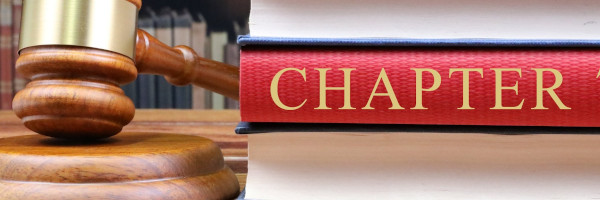Open Source
| Data | |||||||||||||||||||||||||||||||||||||||||||||||||||||||||||||||||||||||||||||||||||||||||||
|---|---|---|---|---|---|---|---|---|---|---|---|---|---|---|---|---|---|---|---|---|---|---|---|---|---|---|---|---|---|---|---|---|---|---|---|---|---|---|---|---|---|---|---|---|---|---|---|---|---|---|---|---|---|---|---|---|---|---|---|---|---|---|---|---|---|---|---|---|---|---|---|---|---|---|---|---|---|---|---|---|---|---|---|---|---|---|---|---|---|---|---|

| |||||||||||||||||||||||||||||||||||||||||||||||||||||||||||||||||||||||||||||||||||||||||||
| Sectors | Data | ||||||||||||||||||||||||||||||||||||||||||||||||||||||||||||||||||||||||||||||||||||||||||
| Contact | Wilfred Pinfold | ||||||||||||||||||||||||||||||||||||||||||||||||||||||||||||||||||||||||||||||||||||||||||
| Topics | |||||||||||||||||||||||||||||||||||||||||||||||||||||||||||||||||||||||||||||||||||||||||||
Activities
Press
| |||||||||||||||||||||||||||||||||||||||||||||||||||||||||||||||||||||||||||||||||||||||||||
- Authors
{{{summary}}}
Barriers
Two barriers currently exist to effective and powerful smart city solutions. First, many current smart city ICT deployments are based on custom systems that are not interoperable, portable across cities, extensible, or cost-effective. Second, a number of architectural design efforts are currently underway (e.g. ISO/IEC JTC1, IEC, IEEE, ITU and consortia) but have not yet converged, creating uncertainty among stakeholders. To reduce these barriers, NIST and its partners convened an international public working group to compare and distill from these architectural efforts and city stakeholders a consensus framework of common architectural features to enable smart city solutions that meet the needs of modern communities.
Opportunities
The way to think about data is as a new currency – a store of value. What is the value of data, it is a similar question to what is the value of the USD or GBP. The answer for the value of USD is that it is a “basket of goods” because the USD is a store of (potential) value. Stuff you can spend the USD on. A similar answer for the value of data would be “a basket of personalisations/recommendations”. Taking the analogy further, data isn’t valuable till you ‘spend’ it, i.e. when it becomes a medium of exchange. Like the way USD is not really valuable till you spend it. And just because it has the potential to be spent on something, doesn’t mean that it can be realised. Try to go to a country that doesn’t accept USD and you’ll get what I mean. Currently, the part of the Internet that is thirsty for this personal data currency (in a very lumpy and crude form) is advertising. But that is quickly changing. We are already seeing personal data being used (“spent”?) for recommendations, advice, and insights across a whole range of industries.
The difference between data and USD is of course in the way data is made into a medium of exchange. Data on Facebook is a currency because of the way Facebook organises it for its ease of use and exchange in targeting ads. So Facebook data on Facebook is not just where the data sits, it is also where the exchange happens. Facebook personal data is therefore a kind of personal data currency in the ‘country’ of Facebook and FB has created exchanges and transactions that made the medium of exchange possible. Take the data out of Facebook, and suddenly one is not really sure of its ‘value’. Without the platform, it’s data is stripped of its contextual use, making its value uncertain unless there is another place to use it. So, stripped of its context, FB personal data becomes a potential value in use.
The way the USD ensures its potential value is realised is by having it in an accessible place, like a wallet or a bank account, and by having places to spend it. Then when we see something we like, we can immediately spend it. Data is similar. Its value is only realised when used. Your body dimensions data are a great set of data when ‘spent’ or used for recommendations from a clothing shop. Like the USD, data can be a store of value but you would need it to be in a holding place until you see something that you want recommendation or personalisation on and you can then give it out. With USD you can do that with a wallet or a credit card/bank account. With data you have a HAT microserver – real time, on demand personal data as a medium of exchange with apps and websites – and a way to be available for every form you want to fill as well as every time you want to give any information about you, your life, your health or your views in return for something on the Internet.
However, the analogy between data and USD breaks down when you go further into its economic properties. For USD, once it’s spent, you’ve got to out to earn more of it. For data, you can use and re-use that data again and again. That’s why it’s worth keeping it for ourselves. They are a part of our attributes and our digital history (assuming its real, that is), and no amount of money can buy that history if you’ve never collected it. And if you didn’t, and when the future comes along to be able to exchange data with great recommendations, personalisation and advice for health well being, jobs, clothing, diet etc. etc., we will be poorer without our data.
HAT microservers help make our personal data into a store of value, making us a more valuable Internet citizen; Using plugs, we can bring the data that is out on the Internet into our HAT. Yet, to make our HAT data into a universal medium of exchange requires a different effort and it leads to the second question I get asked a lot – how to make personal data controlled and owned by the person usable and valuable. That, really, is a question on how we make HAT data a universal medium of exchange i.e. how do we make personal data a currency for the person to be able to ‘spend it’.
People think data is an object or some commodity like oil. It doesn’t help that many have actually said “data is the new oil”. This makes a BIG assumption i.e. we know the boundaries of what makes it a commodity. Even oil is commoditised through rights to drill or a barrel of crude oil. Data? Its existence does not make it an economic good. Not yet anyway.
I spend a lot of my time on this question making data an economic good and rather than explain the dry, economic model, I’ll use another analogy. Say there is spring water running through your land. How would you commoditise it?
Personal data faces a similar challenge. Like flowing water, it doesn’t have good boundaries around that which we can say, this is mine, and those are yours. When it sits in corporations database, individuals have very few rights (only recently, rights of portable access because of GDPR). If we acquire it into our HAT microservers, we have therefore more rights over the data acquired, and can choose to give them away in exchange for something, like the way we might be able to give rights to the spring water running through our land. Yet, to commoditise it, we might need to put a boundary around it so that it can be exchanged. If you had spring water running through your land, you could give rights to access it between 8–9am in morning. That right of access becomes an exchangeable commodity in its own right. Or you can commoditise it yourself through bottled water, or a glass of water. Only then would it become easier to trade as a commodity.
This is basically what we have done with personal data and HATs. We need to have a mechanism for HAT owners to acquire their data (similar to having rights to the spring water), a model for commoditising it for all possible usage of personal data (‘would you like a cup of water, a bottle of water or … something else’) which is the HAT schema that allows any possible recombination of data acquired to be made into an exchangeable bundle (commodification model). Then, to ensure the bundle can be given securely with end to end encryption (the exchange model), with clear rights (the legal model) and explicit permissions by the HAT owner (permissions model). That means HAT data isn’t just Spotify data, or Facebook data; once they get into the HAT, it’s all HAT data owned by the person – a store of value – in a standard format across all HAT owners. HAT data sits in a set of frameworks that makes it a medium of exchange (ie currency) for use and re-use by applications in a way that would allow an efficient market to form, and the person is “wealthier” with HAT microserver as a store of value for HAT data with multiple uses of that currency as a medium of exchange.
To find the market for such data is the subject of a whole new post….
At a recent GCHQ conference, I was asked why there is such a big market for personal data now even when rights are so ambiguous. The answer is that personal data is precious, and when there isn’t an explicit market for data exchanges, the black/grey market will do. Markets are like water coming down a mountain, it will find it’s own way. Many of the data brokering and exchange market places for personal data are now technically illegal since 25 May when GDPR came into effect. GDPR has broken that data supply chain by requiring explicit permissions for sharing. Many still do it because (1) it’s not easy to catch them (2) they hide behind some pseudo anonymisation rules. Unless there are clear ways for it to be exchanged by the person that generated it, the black market will continue to exist, much like early days of music sharing.
Demonstration Projects

|
[[Citizen App]] | |
| Citizen App, the first of its kind, empower individuals to claim and legally own their data from across multiple sources, then use it securely and seamlessly in everyday life. | ||

|
[[Go-Green]] | |
| GoGreen aims to help people understand the impact of small sustainable gestures on their communities through technology. It presents itself as a community rewards system where participating points providers can define actions that support their communities objectives and reward people for taking them. For the users they see a marketplace of options along with rewards based on secure blockchain based smart contracts for supportive behavior. | ||

|
[[Neighborhood Data for Social Change]] | |
| The Neighborhood Data for Social Change (NDSC) platform is a free, publicly available online resource for civic actors to learn about their communities. | ||

|
[[Open Participatory Budgeting]] | |
| Participatory budgeting (PB) is process in which citizens decide how to allocate part of a municipal or public budget through a process of democratic deliberation and decision-making. Participatory budgeting allows citizens or residents of a locality to identify, discuss, and prioritize public spending projects, and gives them the power to make real decisions about how money is spent. | ||

|
[[Personal Access System for Services (PASS)]] | |
| Social services are programs or services designed to support individuals and communities in need. They provide assistance with basic needs such as food, housing, and clothing, as well as health and medical care, education and job training, child care, support for individuals with disabilities or mental health conditions, and aging and elder care. These services are intended to improve the quality of life for individuals and communities and help individuals achieve self-sufficiency. | ||

|
[[Small Donor Elections]] | |
| The Small Donor Elections program seeks to reduce the influence of money in politics and encourage election of people to City office who are reflective of and accountable to all Portlanders. | ||

|
[[The Solid Project]] | |
| The Solid project is a decentralized platform for the Web that he and a team of researchers at MIT are developing. The goal of the Solid project is to give people more control over their personal data and how it is used by enabling them to store their data on their own servers or "pods," rather than on centralized servers controlled by companies. | ||

|
[[Urban Platform]] | |
| An easy-to-use platform that allows you to manage your city, whether you are responsible for traffic and mobility, safety, infrastructure or high-level decision making. | ||













